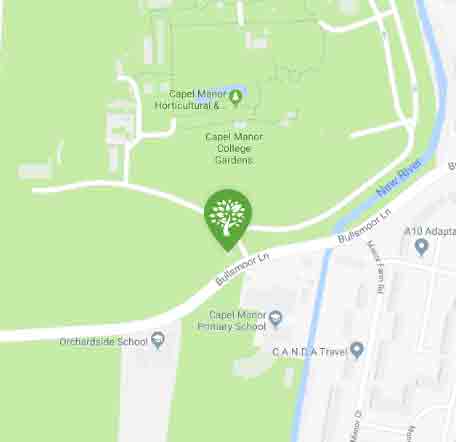Literacy
Vision
At Orchardside, literacy and communication are at the heart of our curriculum, with our central aim being 'Literacy for Life.' We believe that the ability to read, write, speak, and listen with fluency and confidence is fundamental to academic success and lifelong learning. Our whole-school literacy strategy prioritises high-quality instruction across all subject areas, ensuring students develop the skills necessary to access, engage with, and critically evaluate knowledge in every discipline.
We believe that fluent reading, writing, speaking, and listening are essential for students to thrive as global citizens. Orchardside recognises the link between communication literacy and challenging behaviour and, therefore, uses every opportunity to encourage pupils to make sense of the world around them through consistent, frequent, and effective teaching and learning of literacy. Staff members are now Elklan practitioners, enabling the school to support Speech Language and Communication Needs (SLCN) more effectively. Orchardside practitioners use the accredited programme to differentiate and embed core literacy practices within the curriculum.
We also acknowledge that many young people have unidentified speech, language, literacy, and social communication needs, so all pupils are assessed on entry. We have a very clear process of identifying and assessing the needs of all students through a specialised analysis conducted by our SEND intervention team, which helps determine the level of need and provision required by the student. Where students are identified as below the expected literacy level, we create a personalised learning programme with clear strategies to facilitate access to the curriculum for all.
Personalised Learning Programmes are used alongside classroom lessons to fill gaps, consolidate learning, and practice core skills, thereby quickly raising the student’s ability to engage in the curriculum effectively:
- Weekly focus on Literacy through Tutor Time
- Catch-Up Literacy interventions
- Language For Thinking
- Speech and Language therapy sessions
Aims
- Foster a love of reading for pleasure by ensuring students can access engaging and diverse texts in all classrooms. This includes establishing designated reading corners in each classroom and utilizing digital resources like E-Platform to offer a wide range of eBooks and audiobooks.
- Create a communication-friendly environment that enriches our students’ relationship with language and maximizes opportunities to promote speech, literacy, and social communication skills.
- Ensure that all staff working with students have the expertise to improve literacy skills within their lessons while maintaining high literacy standards across the school. This involves:
- Ensure consistency of literacy practice, including methods, vocabulary, and notation, while promoting collaboration between subjects and integrating initiatives such as World Book Day and the Orchardside Dictionary to encourage cross-curricular literacy engagement and subject-specific literacy development.
- Support the transfer of students’ knowledge, skills, and understanding between subjects to enhance learning across the curriculum, utilizing resources like the Orchardside Dictionary to provide a shared vocabulary that facilitates comprehension and application of concepts in various disciplines.
- Enhance parental involvement by equipping families with strategies and resources to support literacy development at home, thereby reinforcing the skills learned at school and fostering a community-wide culture of literacy.
Purpose
The purpose of our whole-school literacy policy is to
- Develop students’ confidence and raise their self-esteem.
- Improve the literacy skills of all students.
- Establish and maintain high, consistent expectations across the curriculum.
- Develop students’ literacy skills.
- Prepare students for life in a communication-led society.
- Strengthen home-school connections Impact.
Strategies
To achieve these aims and purposes, Orchardside will implement the following strategies:
Parental Engagement Initiatives
- Educational Workshops: Host regular sessions where parents can learn effective literacy support techniques, such as read-aloud strategies and creating conducive reading environments at home.
- Resource Distribution: Provide families with access to books, both physical and digital, through school lending libraries and guidance on utilising the E-Platform effectively.
- Regular Communication: Maintain consistent updates through newsletters and meetings to inform parents about their child's progress and upcoming literacy events, fostering a collaborative approach to literacy development.
Regular Review Process
- Scheduled Evaluations: Conduct annual comprehensive reviews and mid-year assessments to monitor progress, identify areas for improvement, and adapt strategies as needed.
- Data-driven decision-making: Utilise student performance data, stakeholder feedback, and alignment with current educational standards to inform policy adjustments, ensuring the literacy program remains practical and relevant.
By integrating these components, the Literacy Vision document will address the development of students' literacy skills within the school environment, actively involve families in the learning process, and establish a framework for continuous improvement of literacy practices.

